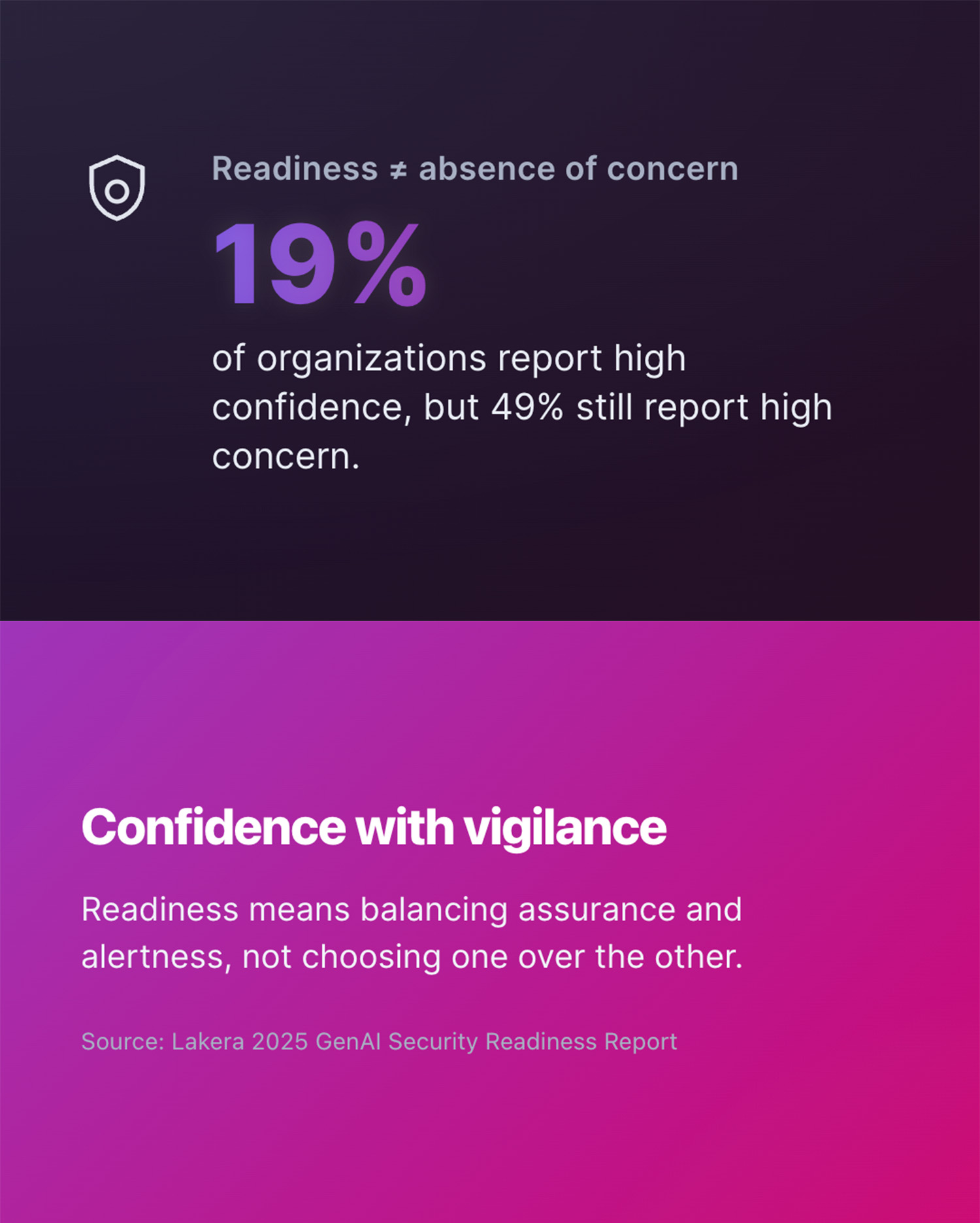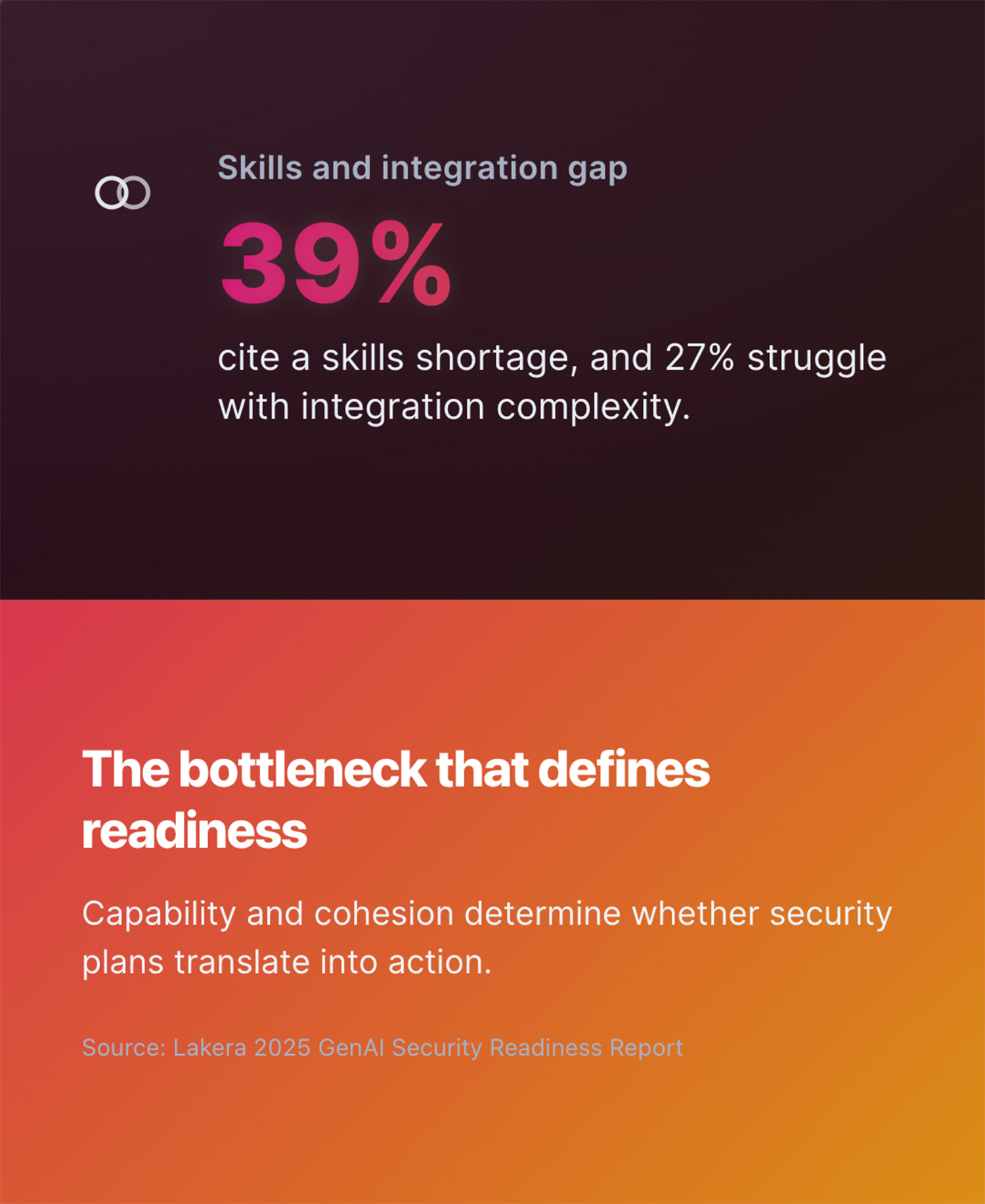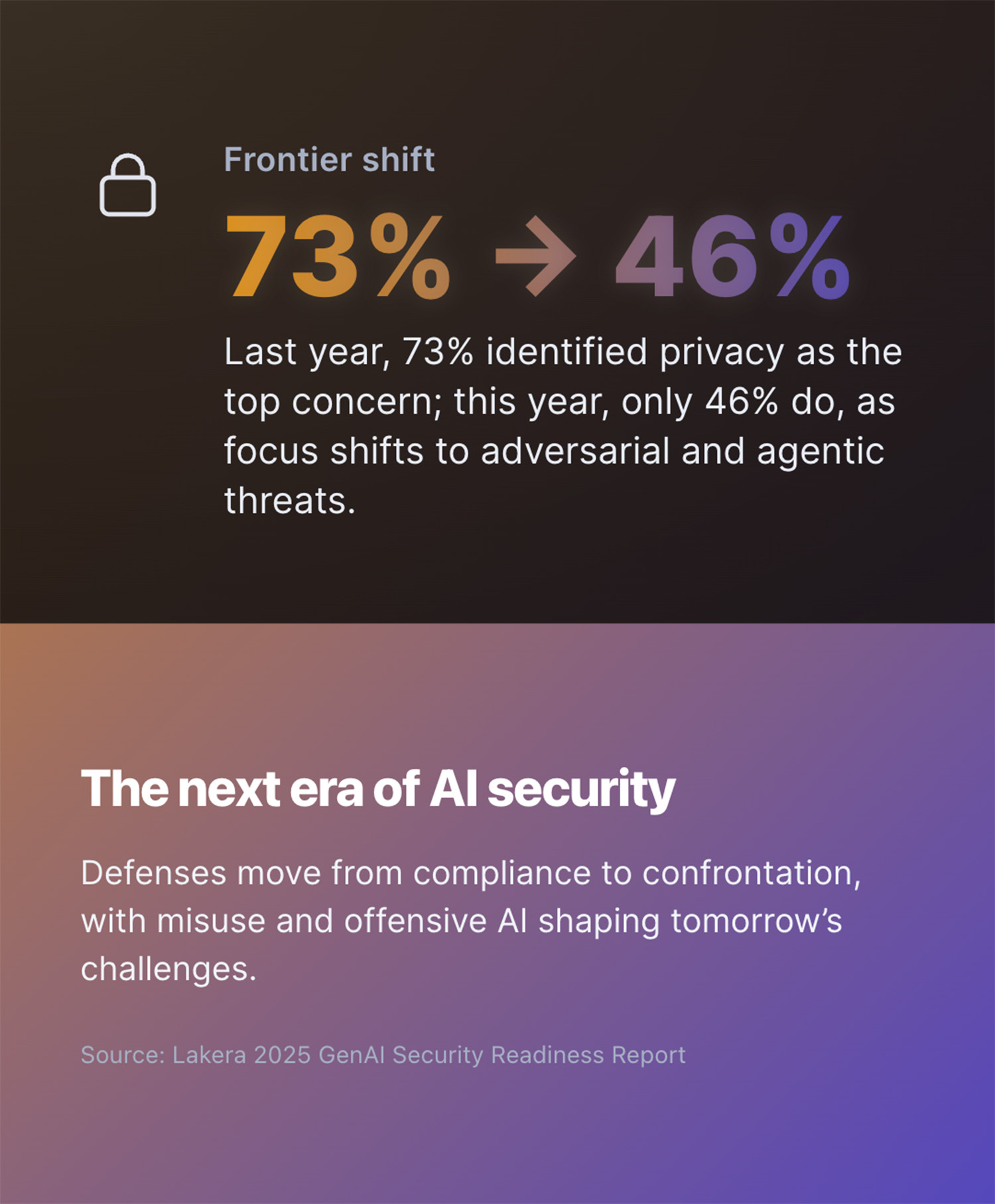Two years after the ChatGPT moment, the enterprise AI landscape looks very different.
GenAI is no longer an experiment, it’s embedded across workflows, customer touchpoints, and developer pipelines. Yet one question still defines 2025:
Are we really ready for what we’ve built?
Lakera’s 2025 GenAI Security Readiness Report takes a practitioner-first view of this question. Drawing insights from professionals on the front lines of AI security, the report captures how organizations are adopting, securing, and struggling with generative AI at scale.
Adoption is racing ahead but security maturity lags behind
Nearly half of organizations surveyed are already implementing GenAI solutions in production.
That’s a massive leap in adoption compared to last year’s figures.
But readiness hasn’t kept pace.
Only 19% of organizations describe their GenAI security posture as “highly confident,” while nearly half (49%) report high concern about the vulnerabilities they face.
It’s a paradox. And a warning.
Confidence alone doesn’t mean readiness.

From awareness to action: incidents are teaching the wrong lessons
15% of organizations reported a GenAI-related security incident in 2025.
The top culprits?
- Prompt injection attacks that override system instructions.
- Data leakage from insecure integrations.
- Biased or manipulated outputs that expose ethical and compliance gaps.
What’s striking is that incidents don’t necessarily lead to maturity. Many organizations become more aware but not substantially more secure. Awareness spikes, but structured defenses remain rare: a cycle that mirrors the early cloud era, when visibility outpaced action.
The skill gap defines the new security frontier
If there’s one constant across industries, it’s the human bottleneck.
39% of respondents cite a shortage of skilled AI-security talent as their biggest challenge, while 27% point to the complexity of integrating GenAI systems with existing infrastructure.
Together, these two pressures create what we call a compound readiness gap: organizations may have the will to secure GenAI, but not the architecture or expertise to make it happen.

“We rushed adoption without skilled staff, and now we’re paying for it in security debt.”
— Survey respondent, security professional
The risks are shifting, fast
Privacy remains the most-cited risk, but its dominance is fading.
In 2024, 73% of organizations said privacy was their top concern.
In 2025, that number dropped to 46%, overtaken by threats like adversarial misuse, agent risks, and offensive AI, the next generation of GenAI security challenges.
These emerging risks mark a turning point: security teams are moving from compliance-based protection to runtime confrontation, where attacks evolve as quickly as the models themselves.

A living snapshot of GenAI security
The 2025 GenAI Security Readiness Report is more than a data set, it’s a mirror of an industry in transition.
-db1-Inside, you’ll find:
- Practitioner insights from developers, researchers, and CISOs.
- Role-based breakdowns of risk perception.
- Trends shaping the next generation of GenAI defenses.
- Visuals that chart how concern, confidence, and preparedness intersect across industries.-db1-
The message is clear:
Readiness is not a destination. It’s a moving frontier.

.svg)






